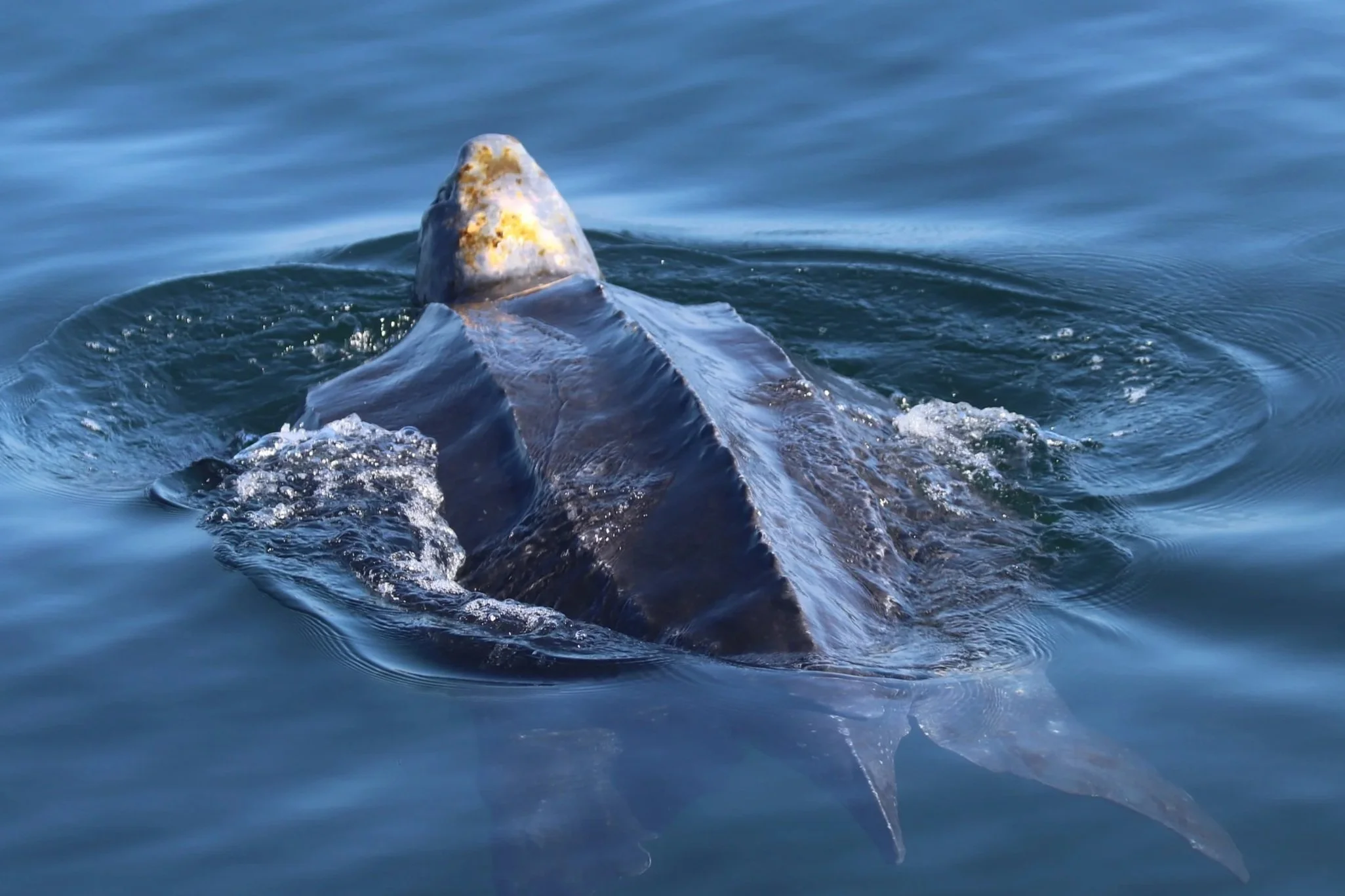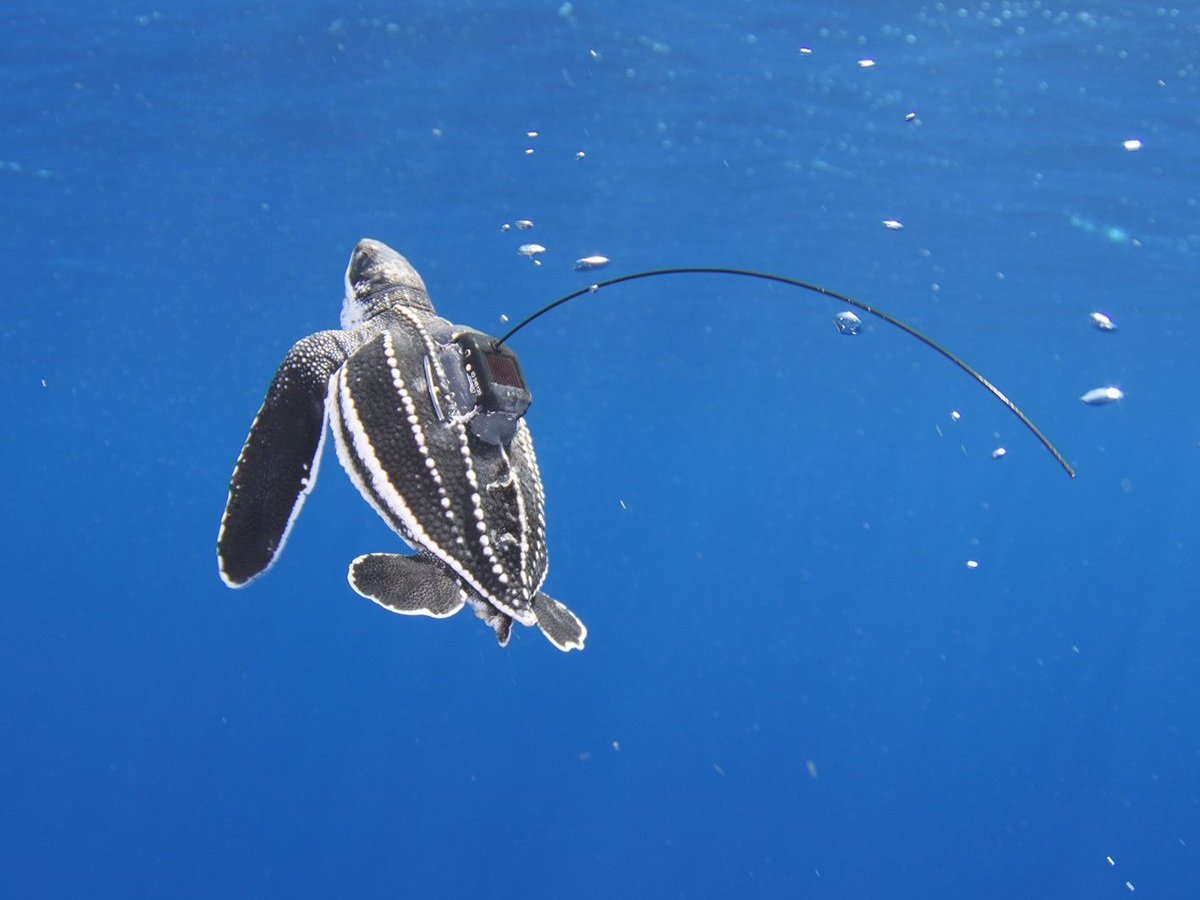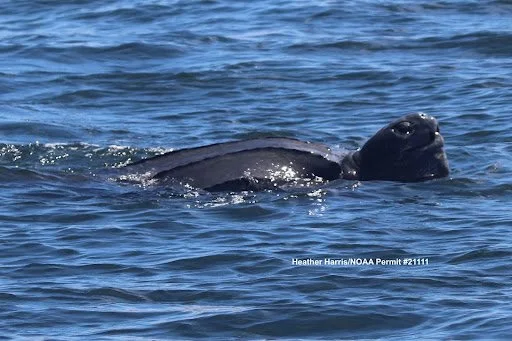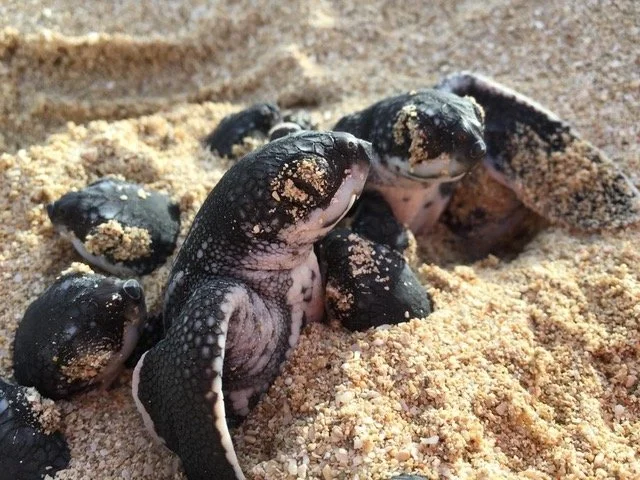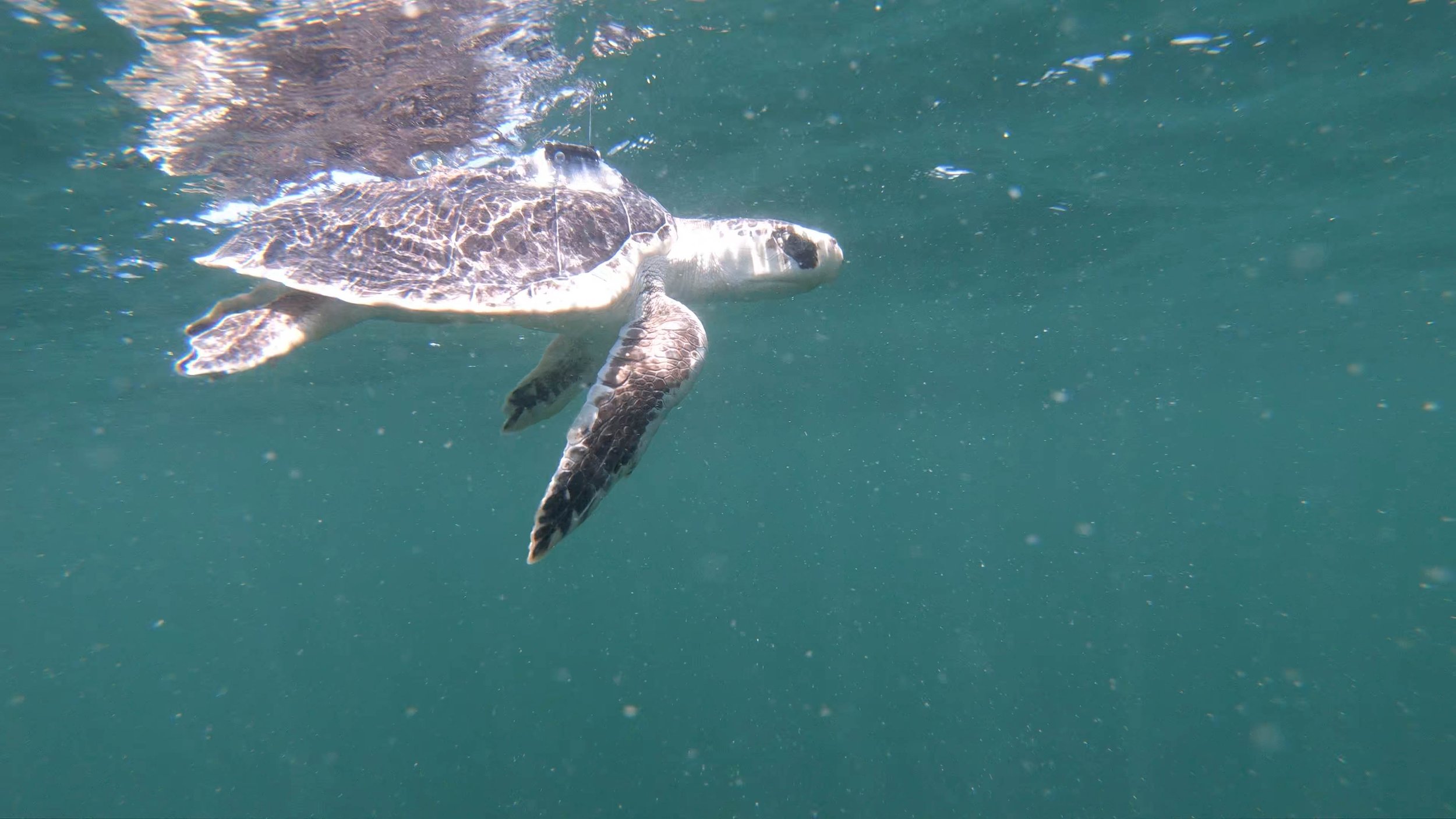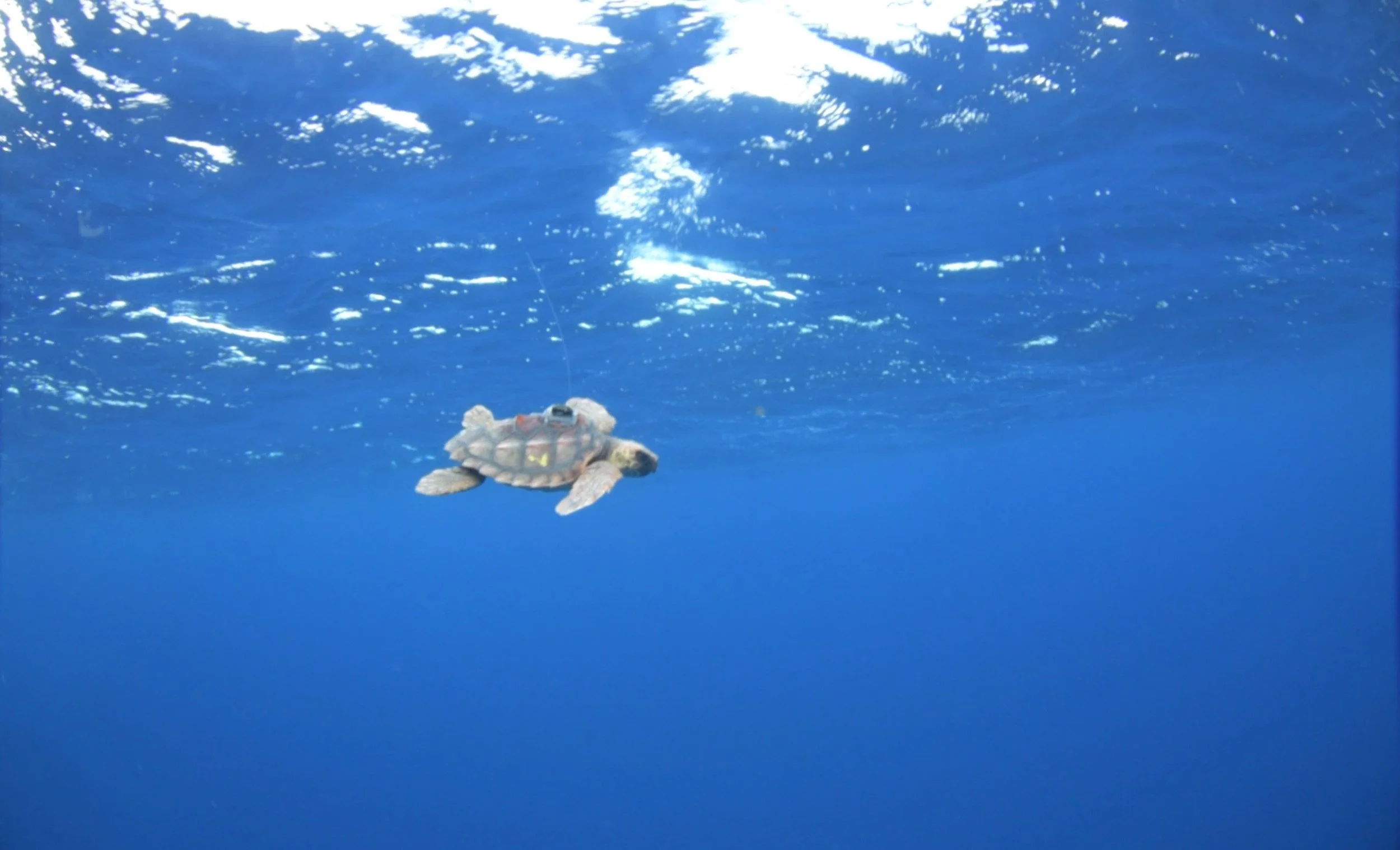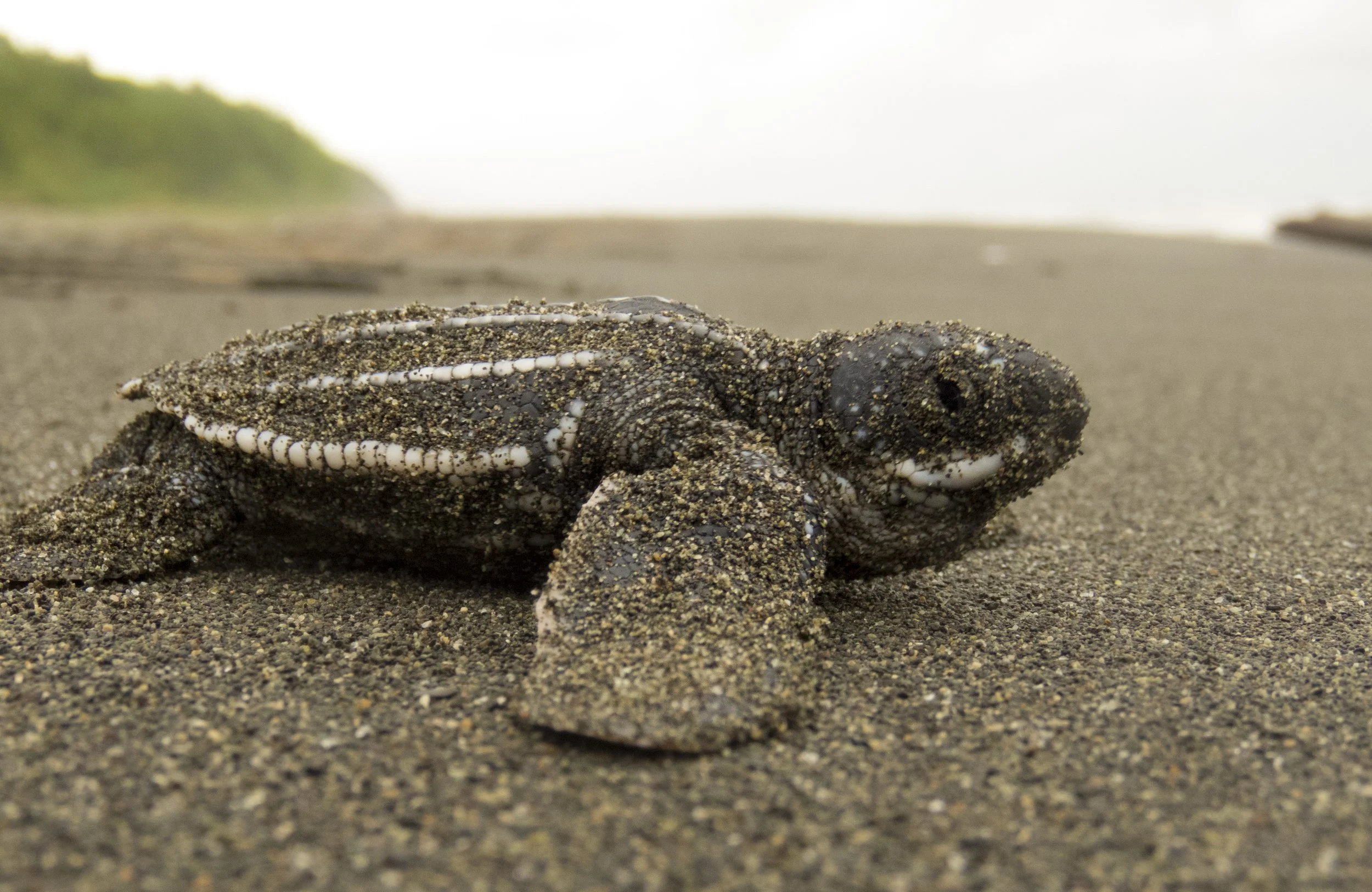Since 2021, John Douglas has worked with Upwell as captain of the Sheila B. research vessel while monitoring for leatherback sea turtles in the Pacific Northwest. The Sheila B. is a boat that has been specially engineered for the research work that it carries out. In this blog, John gives us insight into its history and its evolution into the perfect vessel for leatherback sea turtle monitoring.
Ember the Juvenile Loggerhead Swims out into the Atlantic!
Ember the Rescued Baby Loggerhead’s Atlantic Adventures
More Nausea and Curiosity: A research assistant monitoring West Pacific leatherbacks in the California Current
Leatherback hatchlings in a changing world
Rescued sea turtles help advance “lost years” research
Upwell recently collaborated with Dr. Terry Norton and the Georgia Sea Turtle Center (GSTC) on the release of eight rehabilitated juvenile Kemp’s ridley sea turtles. Prior to their release, each of the seven turtles were outfitted with the prototype microsatellite tags by Upwell researchers and the GSTC team.
Update from the field: The little turtle that could
In late November, 2021 Upwell deployed six prototype micro-satellite tags on juvenile loggerheads in the Azores. Despite the estimated 80 day tag lifespan, one of the solar powered tags continues to transmit over 150 days later! The tag is carried by the smallest of the group of loggerheads who was named Peniche.
Meeting your Heroes in a Virtual World
Princeton student Max Gotts recently attended the virtual 40th Annual International Sea Turtle Symposium (ISTS) for the first time to present his research on nearshore mortality’s role in leatherback hatchling evolution. In 2018, Max worked with Upwell Researcher Nicki Barbour in Costa Rica tracking leatherback hatchlings. Find out more about his research and experience at ISTS.
Collaborative research helps save cold-stunned sea turtles on the Pacific Coast
Update from the field: Juvenile green sea turtle tagging in the Cayman Islands
Upwell recently partnered with the Cayman Turtle Centre on Grand Cayman Island to deploy microsatellite tags on 30 captive-reared green sea turtles of different age classes. By releasing sea turtles of different age classes from the same location at the same time, we are examining how variables such as age and size may influence the likelihood of encountering optimal foraging habitats and decreasing the risk of early mortality.

